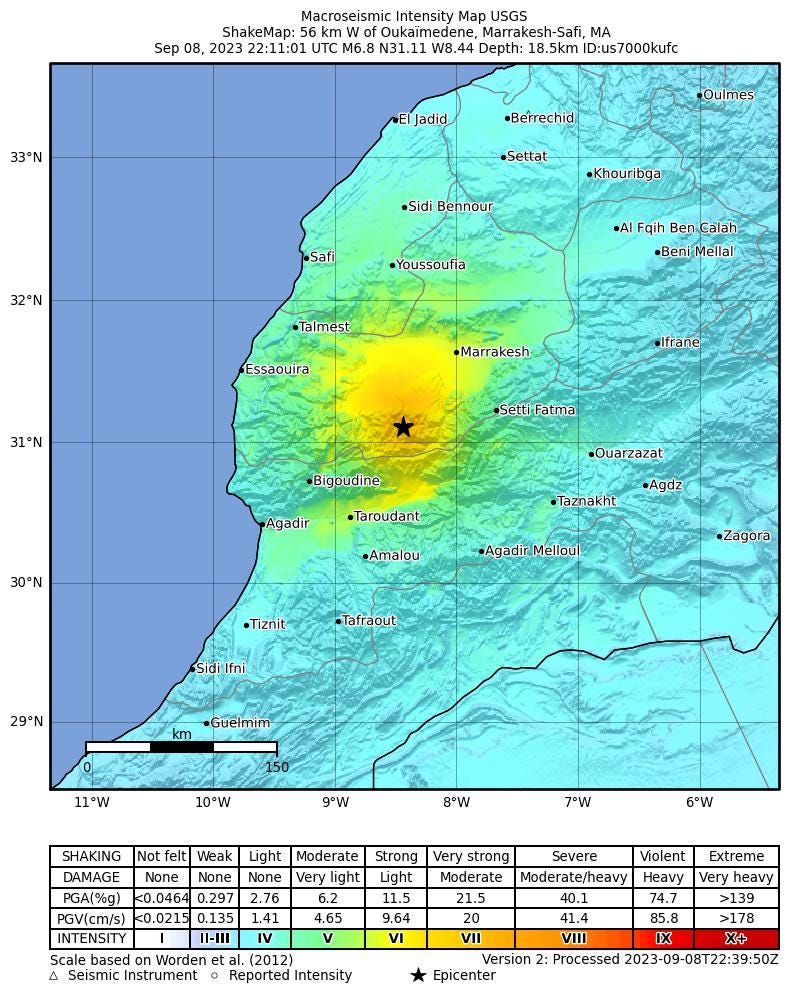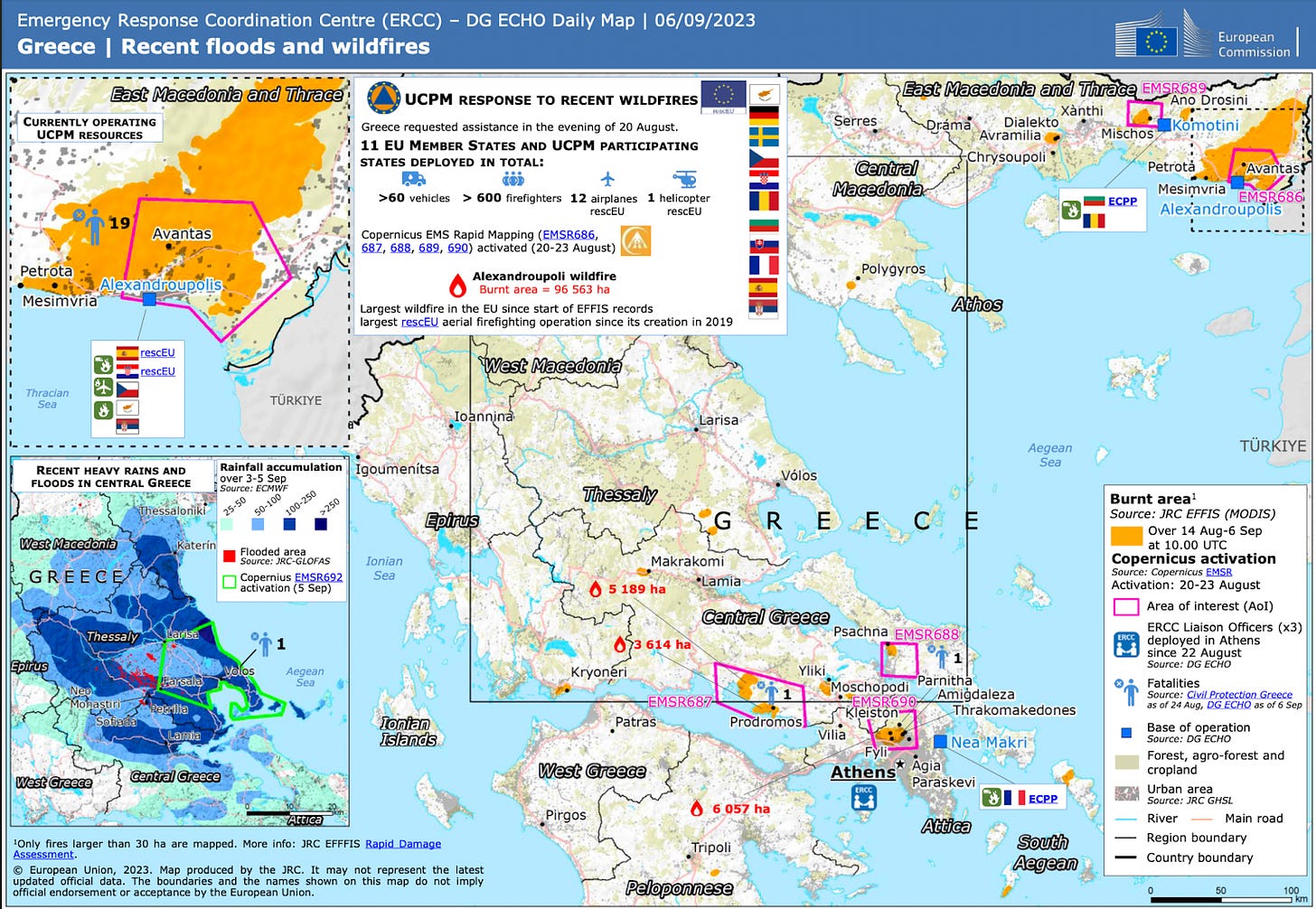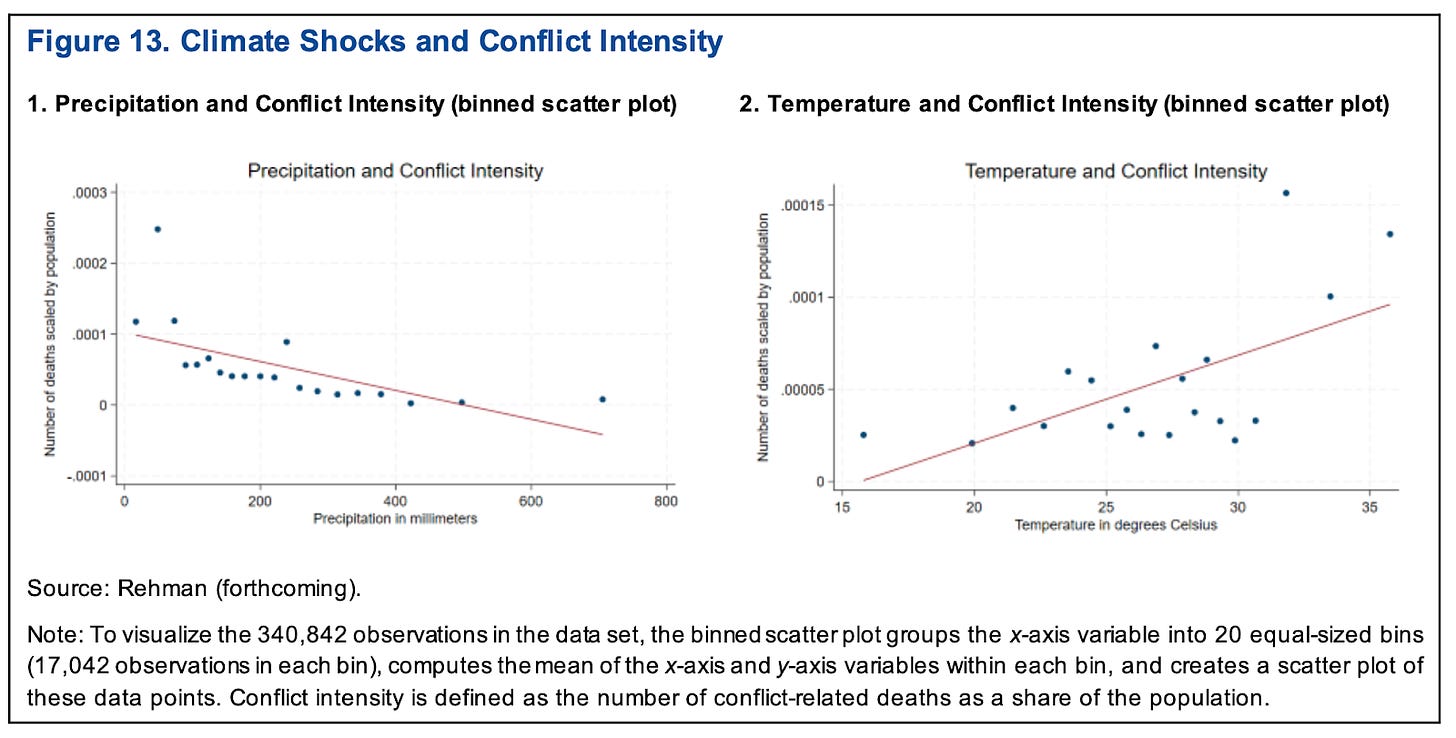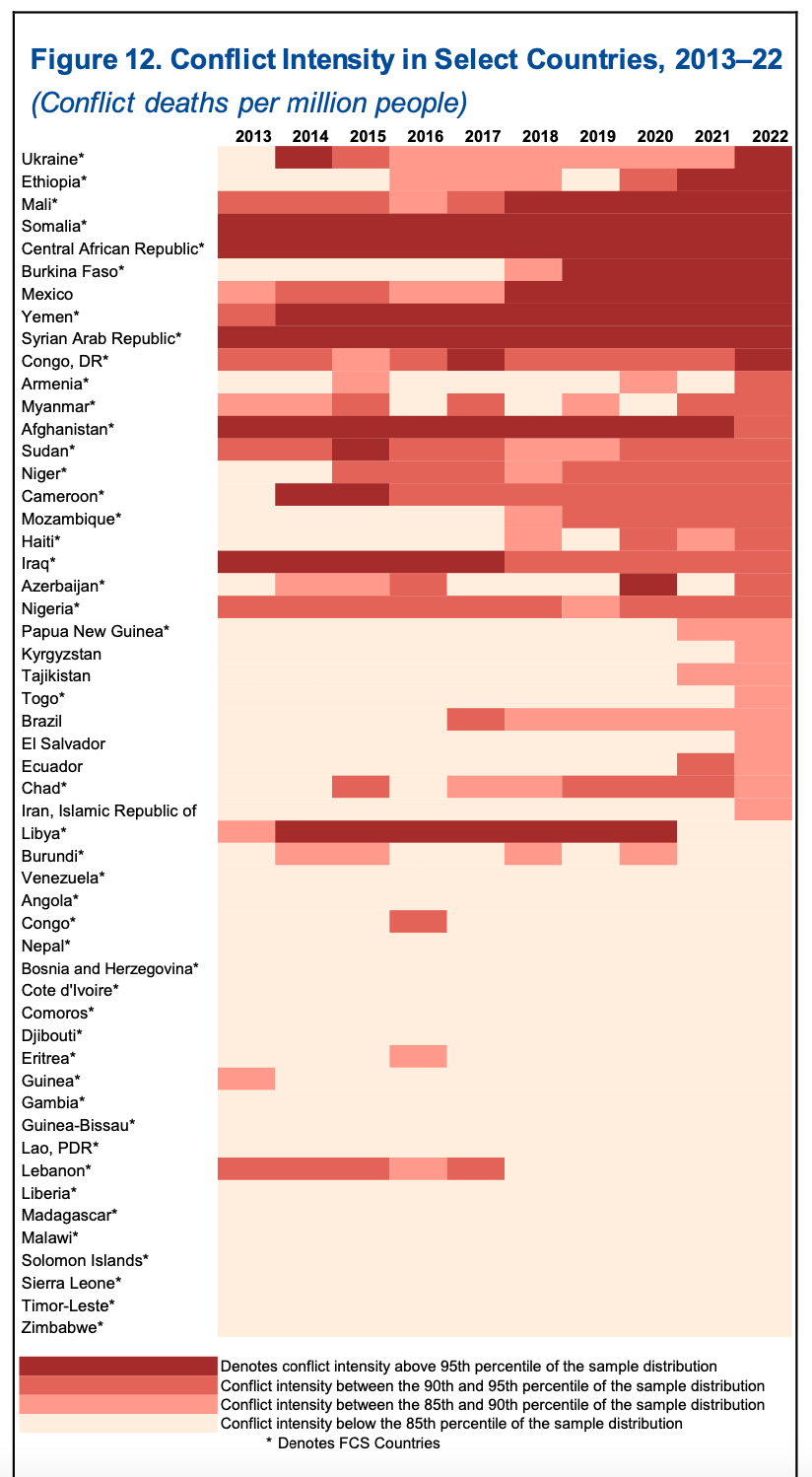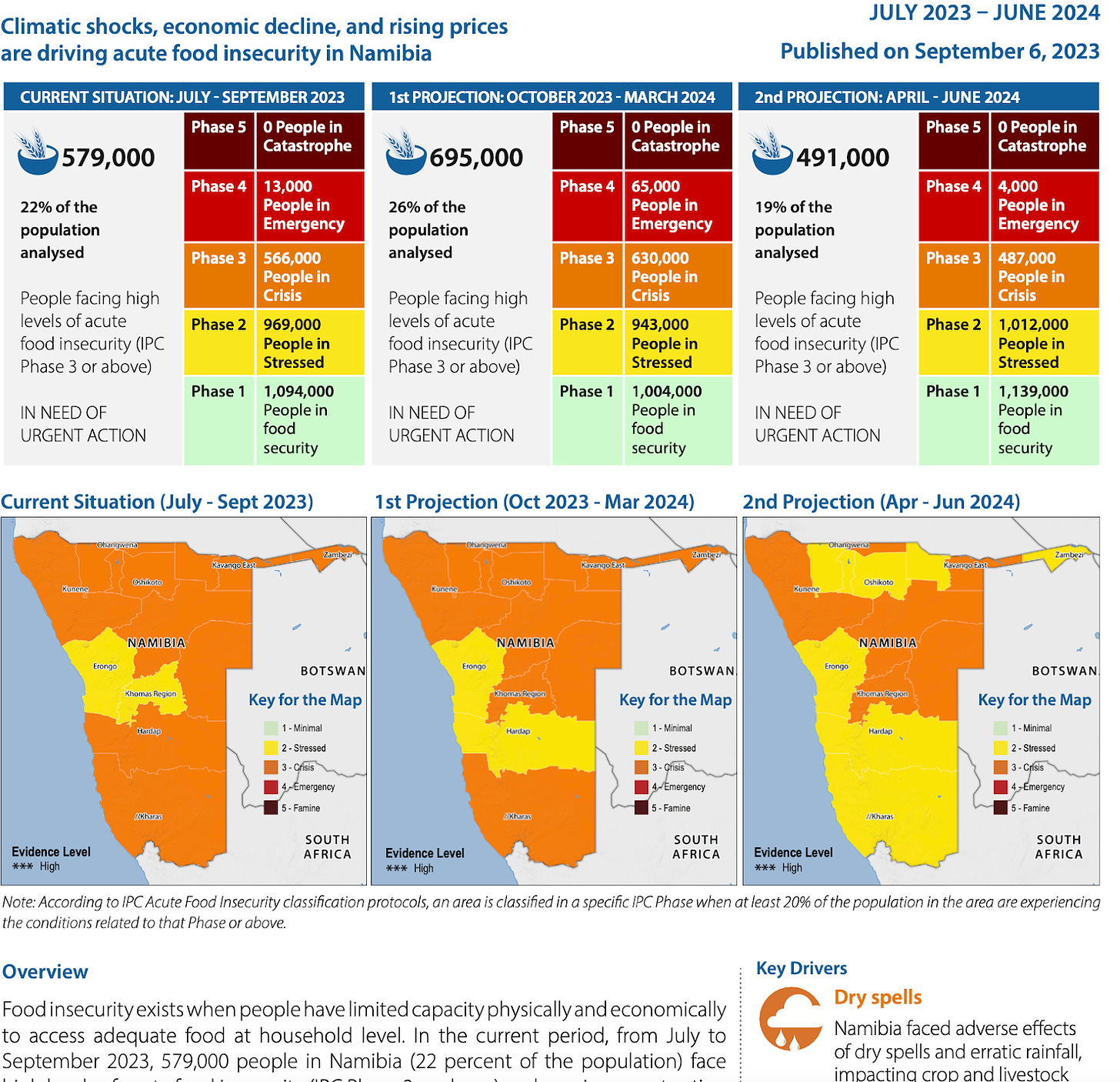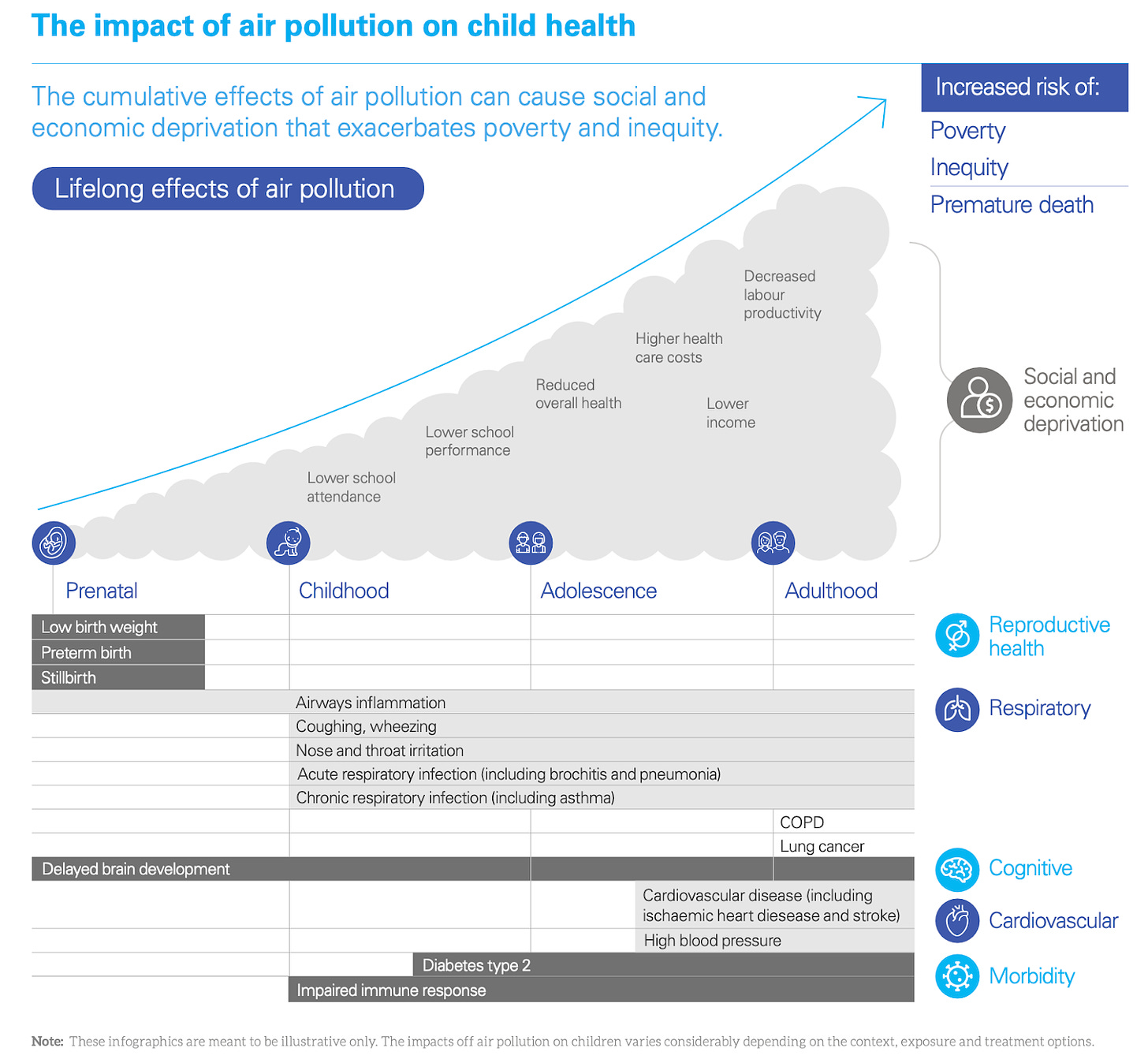Last Week in Collapse: September 3-9, 2023
Friction, Heat, and War. For many, Collapse is here already.
Last Week in Collapse: September 3-9, 2023
This is Last Week in Collapse, a weekly newsletter bringing together some of the most important, timely, useful, depressing, ironic, stunning, or otherwise must-see moments in Collapse.
This is the 89th newsletter. You can find the August 27-September 2 edition here if you missed it last week. Thank you for subscribing to the Substack.
The architect of the Svalbard Global Seed Vault is warning of global famine by 2050 if food production doesn’t increase 50%+—and production is projected to decrease because of drought, heat waves, and everything else. He said “we are in the midst of a global food crisis” already…and encouraged humanity to attempt “moonshot” projects to salvage our species’ future.
A 6.8 earthquake struck Morocco late Friday night, killing 2,000+ and displacing many. A 4.9 aftershock followed. Landslides tumbled in the High Atlas Mountains and the damage is still being assessed. Earthquakes are unpredictable black swan events—how can one prepare? It was Morocco’s strongest quake in 123 years.
August 2023 was Europe’s second-hottest month on record—after July 2023, that is. Overall, planet earth had its hottest three consecutive months in recorded human history from June—August. Experts say with 98% certainty that one of the next five years will be the hottest on record. The UN is warning that the world will miss its climate targets; soon we will have to move the goalposts to another place again.
Antarctica is heating up “at a rate of between 0.22 °C and 0.32 °C per decade, compared to 0.18 °C per decade predicted by climate models.” Scientists said that changing wind patterns over the continent concealed the extent of the regional warming.
The Africa Climate Summit took place in Nairobi last week, and the countries agreed: global carbon taxes should be imposed to reduce carbon emissions. Disagreements remain over the “historical responsibility” of climate change.
Although Greece’s mega-wildfire is shrinking, flooding struck central Greece, Bulgaria, and Türkiye, killing at least 12.
Last week, I was fortunate enough to meet a former diplomat in Egypt, who casually mentioned to me that “Egypt will collapse within six years.” Unfortunately we did not get to explore this assertion in much detail, but the underlying factors are a combination of resource/water/energy scarcity, regional conflict, and debt. Collapse is a result of a failed social contract.
A winter heat wave blasted Lake Titicaca’s water levels. If Bolivia and Peru—which share the Lake—cannot improve their long-term water management strategy or geoengineer a solution, South America’s largest lake is going to get flushed away forever. Lakes become craters.
The International Monetary Fund released a decent 51-page report on the nexus between climate change and conflict. In these fragile, conflict-affected states, extreme weather events occur roughly once every four years. The most dangerous consequence of climate change tends to be drought, which impacts national food security, infrastructure, and exports.
American farmers are struggling to adapt to scorching hot summers and a drier climate. Meanwhile Spain’s food industry is lobbying the government for access to more water. Damned if you do, damned if you don’t. Italian tomato harvests are suffering. Spanish olive oil has gotten so expensive that people are getting rich stealing it.
Good news: Brazil’s deforestation rate has dropped considerably over the past year. Bad news: the Amazon is still slowly being cut down, and “double-stress” (alternating drought + flooding) still poses a growing risk of “savannahfication” to the world’s largest rainforest. A cyclone killed 31+ people in Brazil last week, displacing over a thousand people.
New heat records in France, Bahrain’s hottest month, Kuwait breaking monthly record, temperatures in part of Ireland, lots of record temps in China, and D.C. sustained its hottest September heat wave.
Ecuador’s capital saw 22 wildfires in 24 hours. Some people are warning that some of Canada’s wildfires may burn through the winter.
We all know coral reefs are dying. Coral around the world is already in hospice. But scientists are considering deep-freezing coral now to preserve it for some future use. Perhaps one day a genetic printing machine will 3D print fresh coral reefs for wealthy collectors.
Climate change is impacting fungi networks, which may be more fragile than previously expected. Unrelatedly, researchers are looking into predicting marine heat waves months in advance.
——————————
“Blast fishing” (using explosives to massacre fish) is becoming more popular. However, most fish killed this way are not harvested. The explosions contribute to crashing fish stocks and present other environmental troubles. We humans are trapped in short-termism.
Data from Haiti suggest 71 people were killed in the last two weeks of August. Escalating violence in Syria killed 54+ people over 10 days.
135,000+ cases of Dengue Fever in Bangladesh in the last 5 months: 600 dead.
As children return to poorly ventilated schools, some researchers are looking into “COVID fatigue” and PTSD related to masking, infections, and the New Normal. Hospitalizations and deaths are up in some parts of the world, and guidelines are still being developed to address Long COVID.
Chinese fertilizer exports tighten, which analysts say will most impact India and South Korea food production. Meanwhile 22% of Namibians are facing food insecurity, projected to worsen over the coming months.
The price of oil keeps rising, and broke $90 per barrel last week. It is the highest oil price all year; Saudi Arabia and Russia continue cutting supply, pushing the price up.
Babies are dying from air pollution at increased rates…and according to WHO guidelines, 98% of Europeans are breathing bad air. And the U.S. EPA is delaying new air pollution standards until after the 2024 election.
Keep reading with a 7-day free trial
Subscribe to Last Week in Collapse to keep reading this post and get 7 days of free access to the full post archives.




